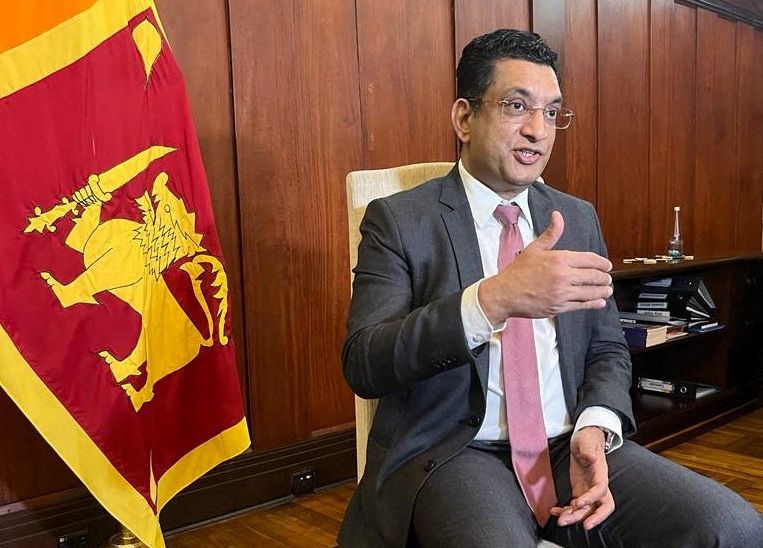Experts call for Sri Lanka’s massive debt cancellation
Private creditors also own around 40% of Sri Lanka's external debt, and a lot of this is held in foreign bonds.

A few minutes every morning is all you need.
Stay up to date on the world's Headlines and Human Stories. It's fun, it's factual, it's fluff-free.
The backstory: Sri Lanka is currently facing its worst economic crisis since its independence in 1948. The country owes a staggering US$51 billion in debt to foreign lenders, which it defaulted on last year. Its largest creditor is China, with a loan of US$7.4 billion. The country has been trying to work out a deal with China, India and Japan about restructuring their loans.
Private creditors also own around 40% of Sri Lanka's external debt, and a lot of this is held in foreign bonds. These bonds come with steep interest rates, meaning these private creditors are getting a hefty chunk (over half) of Sri Lanka's debt payments.
More recently: Sri Lanka reached a preliminary agreement with the IMF last September for a US$2.9 billion bailout package. But, before the disbursement process can begin, Sri Lanka must first put its debt situation on a more sustainable path. This means it needs to get reassurances from many of its lenders, including the asset managers and private investors that hold a huge chunk of its debt.
The development: Now, a group of 182 international experts has released a statement calling for debt cancellation to give Sri Lanka's economy a chance at recovery. The statement also points out that some powerful hedge funds and other private investors are hindering progress in debt-relief negotiations. While the IMF's bailout package is a positive development, experts are concerned that the tough stance of private creditors could lead to a poor deal for Sri Lanka. These experts are saying that the private lenders charging Sri Lanka high "risk premiums" and making huge profits knew the risks, and now they must face the consequences for the good of everyone involved.
Key comments:
"Debt negotiations in Sri Lanka are now at a crucial stage," said a statement by the 182 economists and development experts. "All lenders – bilateral, multilateral, and private – must share the burden of restructuring, with assurance of additional financing in the near term."
"Such lenders charged a premium to lend to Sri Lanka to cover their risks, which accrued them massive profits and contributed to Sri Lanka's first ever default in April 2022," the experts' statement added. "Lenders who benefited from higher returns because of the 'risk premium' must be willing to take the consequences of that risk."
"The Sri Lankan case will provide an important indicator of whether the world – and the international financial system in particular – is equipped to deal with the increasingly urgent questions of sovereign debt relief and sustainability; and to ensure a modicum of justice in international debt negotiations," said the group's statement. "It is therefore crucial not only for the people of Sri Lanka, but to restore any faith in a multilateral system that is already under fire for its lack of legitimacy and basic viability."
"With global interest rates increasing and widespread recessions expected in 2023, many more countries could follow," said campaign group Debt Justice, referring to other lower-income countries that are vulnerable to a debt default.
"The new EFF arrangement will support Sri Lanka's program to restore macroeconomic stability and debt sustainability, while safeguarding financial stability, reducing corruption vulnerabilities and unlocking Sri Lanka's growth potential," said a statement from the IMF regarding the preliminary bailout deal with Sri Lanka. "The agreement is … contingent on the implementation by the authorities of prior actions and on receiving financing assurances from Sri Lanka's official creditors and making a good faith effort to reach a collaborative agreement with private creditors."




Comments ()